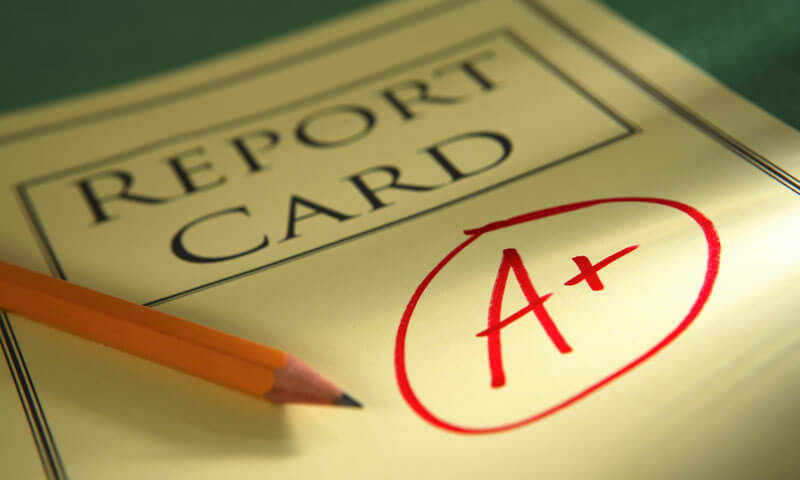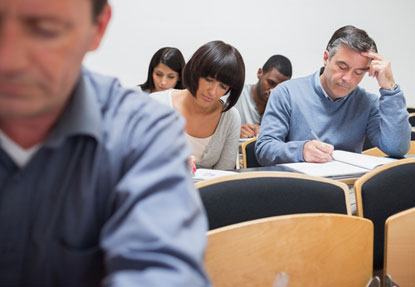Summary: Smartphones and social media have made it much harder for judges to ensure a fair and impartial trial.
In the modern world rife with social media, ensuring privacy in the courtroom has become more and more difficult. Courthouses are peppered with signs reminding people not to use their smartphones in the building. Judges instruct juries not to go online during trials. Although social media can be used to help solve crimes, it also provides a threat to a fair and impartial jury process.
Most recently, lawyer Vince “Trace” Schmeltz tweeted photos from a trial in the Dirksen U.S. Courthouse in Chicago. Schmeltz is co-chair of the financial and regulatory litigation group at Barnes & Thornburg LLP.
On October 28, Schmeltz was observed snapping photos on his smartphone while watching a trial in U.S. District Judge Harry Leinenweber’s courtroom. Later, he posted nine tweets to his Twitter account, @TraceSchmeltz, featuring photos of evidence from the trial.
Photographing or recording anything is strictly prohibited at the Dirksen U.S. Courthouse, as it is in most courthouses. There was even a large sign posted outside the courtroom reading, “PHOTOGRAPHING, RECORDING or BROADCASTING IS PROHIBITED.”
Schmeltz, however, claimed that he “didn’t notice” the sign, and thought that his photographs were okay. According to the Chicago Tribune, Schmeltz said that he found the trial to be a “unique civics lesson,” and he wanted to use it to educate his 244 Twitter followers. Schmeltz thought the tweets were okay, because he only photographed evidence, not jurors or witnesses. Despite his extensive law career, Schmeltz claimed that he wasn’t aware that photography was prohibited, as it is in nearly every courtroom. The Supreme Court itself does not allow any sort of photography.
But it’s not just observers who need to be reminded not to share details of ongoing cases. The American Bar Association now has a recommended jury instruction telling jurors not to share facts online during the trial. These “proposed model jury instructions” are “designed to deter jurors from using social media to research or communicate about the cases on which they serve.” The ABA also suggests that “litigators … request electronic device bans, fines, or contempt charges in appropriate instances.” All of this is newly necessary to ensure defendants a fair and impartial jury – a job that was much easier even five years ago.
I was able to talk to a judge in Washington, DC. She told me the instructions she gives her juries, which are pretty involved:
“During jury selection I allow you to keep your cell phones on and your electronics on, however, you must not discuss the case: and that includes that you may not go online and talk about it. You may not blog about, tweet about it, Facebook post about it, email or text about it. In addition, you must not do any online research or investigation about the case. You may not Google maps, you may not Google the time of the sunrise or sunset, you may not even look up the meaning of words, you may not Google names. You must rely on what you are told in this courtroom in deciding this case.”
“We even have a poster in our juror’s lounge. And it basically tells jurors not to do things with their phones,” she said.
She also told me a story about a particular juror who was texting during the trial. She had instructed the jury not to listen in to bench conferences. “And I inquired [of] this poor 18-year-old kid, were you text messaging while court proceedings were going on? And he said, ‘Yeah, you said not to listen in to bench conferences, so I was texting my friend. He said ‘what are you doing’ and I said ‘I’m at superior court.’”
The same judge also reported that “criminals even get themselves caught by going on Facebook and talking about [the crime(s) they committed].” In these cases, defendants don’t consider that police may be monitoring their profiles, and that this information is public and available to all. She told me about a particular gang that put a rap on Youtube bragging about their illegal activities.
Technology and social media have significantly changed the landscape of courtroom proceedings. Schmeltz was not alone in his desire to document court proceedings – jurors have to be instructed not to use their cell phones during trials, or look up facts online, and criminals even inadvertently confess to their crimes through social media. Judges and courthouses have had to alter their practices to make sure nothing prevents a fair trial. And all of this just serves as yet another reminder of just how much the world has changed with smartphones, Twitter, and Facebook.













































